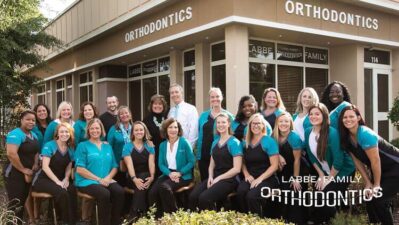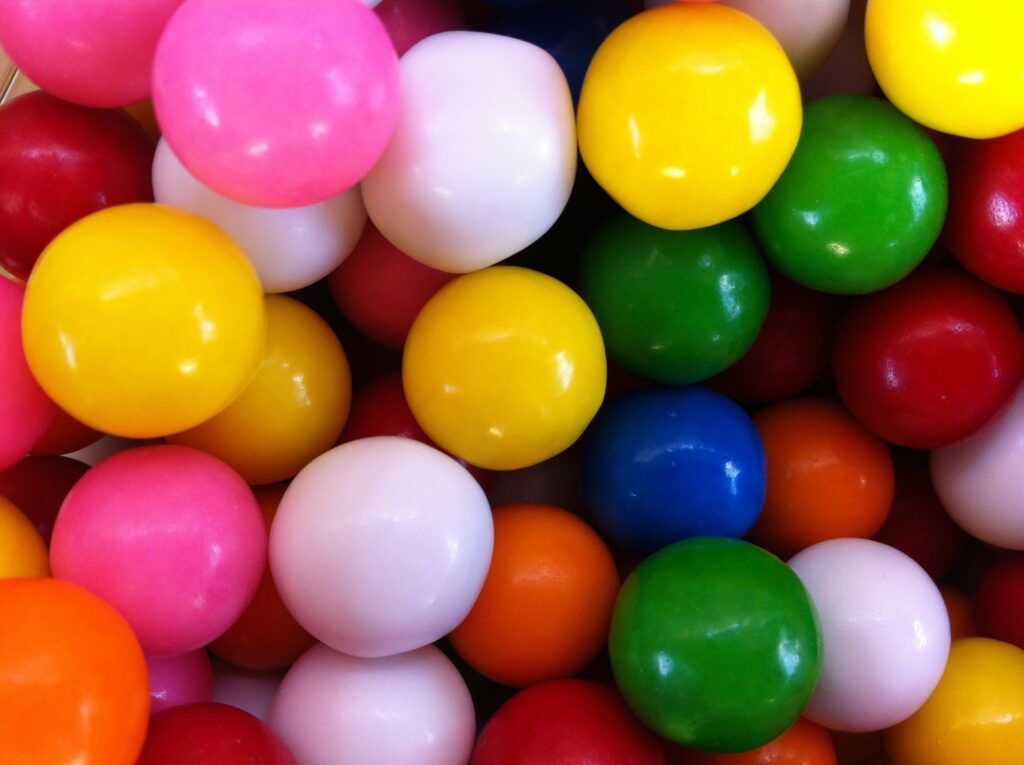Is it really true that chewing gum can be bad for your teeth? The short answer is yes, but it really depends on the kind of gum you choose. We’ll explore what’s good and bad about certain gum types and reveal how what you choose to chew affects your dental health.
Is It as Good as It Looks?
That colorful gum in the grocery store aisle may look delicious but, when it comes to your health, not so much. All it takes is to flip the package over and look at the sugar content and ingredients.
Sugar
Many gum brands contain high amounts of sugar. When combined with the saliva in your mouth, sugar turns into acid that eats away at enamel, increasing your need for orthodontic care.
And, of course, you also swallow that sugar. We now know much more about the negative effects sugar can have on dental health—it can increase the risk of getting cavities—and then there are the negative effects of sugar on your general health.
Ingredients
Some ingredients in chewing gum are best avoided. One example is titanium dioxide—the same ingredient seen in some brands of sunscreen. This is recognized as a potential carcinogen. Butylated hydroxytoluene (BHT) is a carcinogenic food additive that some countries have banned.
Aspartame is a common sugar substitute in chewing gums, but these have been linked to cancer. High fructose corn syrup in many bubble gums is now known to drive the weight gain and inflammation, which leads to serious disease.
Good Gums
Now that you know about the bad, it’s time to talk about the good. The right chewing gum can keep orthodontic specialists happy and benefit your dental health by neutralizing acids and keeping your mouth clean. It can also benefit overall health by not introducing unneeded sugar, food coloring, or dangerous ingredients to your body.
Natural Ingredients
Xylitol is considered a natural sugar because it’s present in vegetables and fruits. Our bodies also produce it in small amounts. Xylitol slows the growth of cavity-causing bacteria and also keeps it from adhering to your enamel. However, too much can cause gastrointestinal upset in some people, making stevia a natural sweetener to consider.
Casein is a milk protein that penetrates the surface of teeth and delivers phosphate and calcium to remineralize enamel from the inside out. You can also find probiotics in several brands of chewing gum.

Probiotics help balance gut bacteria and strengthen the immune system. Some probiotic gums have also been proven to improve bad breath, reduce cavities, and reduce infections in the ears, nose, and throat.
Be aware that chewing these good gums isn’t a replacement for dental maintenance or orthodontic treatment. Brushing, flossing, and seeing your orthodontist are still necessary to ensure lifelong dental health.
Labbe Family Orthodontics specializes in care and treatment for adults and kids and, no matter which location you visit, you’re always treated like family. Life is better with a smile! Call us today at (443) 603-3448.
